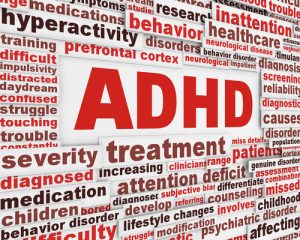ADHD Coaching can help individuals better cope with ADHD in everyday life. ADHD Coaches are not necessarily licensed counselors but healthcare professionals who can help guide individuals in coping with ADHD in more effective ways. ADHD Coaching can also be employed by a licensed counselor as a way to minimize medication or supplement it from a behavioral standpoint. Individuals who suffer from ADHD need coping strategies to better organize their day, prioritize events, stay focused, and reduce the stress of ADHD.

ADHD Coaches can offer a variety of methods to help individuals cope better with ADHD. The article, “Is ADHD Coaching Effective?” by Ugo Uche looks closer at a variety of strategies of how to help individuals cope better with ADHD. He also lists numerous advantages of this type of coaching. He states,
“In conclusion, coaching offers a tailored approach to managing ADHD, providing the tools to navigate the conditions’ challenges. By boosting self-confidence, enhancing organizational skills, and promoting calmness in the face of stress, coaching empowers individuals with ADHD to lead more fulfilling and successful lives.”
“Is ADHD Coaching Effective?”. Uhce, U. (2023). Psychology Today.
To review the entire article, please click here
Commentary
Attention Deficit Hyperactivity Disorder (ADHD) is a neurodevelopmental disorder that affects both children and adults. It is characterized by symptoms such as difficulty paying attention, impulsivity, and hyperactivity. Individuals with ADHD often find it challenging to focus, stay organized, manage time effectively, and regulate their emotions. These difficulties can have a significant impact on their everyday lives, affecting their academic performance, work productivity, relationships, and overall wellbeing.
Living with ADHD can be overwhelming and frustrating, but it is essential to understand that it is not a reflection of one’s intelligence or abilities. ADHD is a neurobiological condition that requires specialized support to manage its challenges effectively. This is where ADHD coaching comes into play.
The Benefits of ADHD Coaching: How coaching can help individuals with ADHD thrive
ADHD coaching is a collaborative and goal-oriented approach that empowers individuals with ADHD to reach their full potential. Unlike therapy, which focuses on exploring the underlying causes of ADHD symptoms, coaching focuses on practical strategies and techniques to address specific challenges in everyday life.

One of the primary benefits of ADHD coaching is the development of personalized strategies tailored to the individual’s unique strengths and weaknesses. Coaches work closely with their clients to identify areas where they struggle the most and devise effective solutions. These strategies can range from improving time management and organization skills to enhancing communication and relationship-building abilities.
Furthermore, ADHD coaching provides individuals with ADHD a sense of accountability and support. Coaches serve as a trusted partner, providing encouragement, guidance, and feedback throughout the coaching process. This ongoing support helps individuals stay motivated and committed to implementing the strategies discussed during coaching sessions.
ADHD Coaching Strategies: Techniques and approaches used by expert coaches
ADHD coaches employ a variety of strategies and techniques to help individuals with ADHD thrive in their everyday lives. Here are some of the most effective approaches used by expert coaches:
Time Management and Organization: Strategies for managing time effectively and staying organized
Time management and organization are common challenges for individuals with ADHD. ADHD coaches help their clients develop practical strategies to overcome these difficulties. These strategies may include creating a structured daily routine, using visual aids and reminders, breaking tasks into smaller, manageable steps, and utilizing technology tools such as smartphone apps and digital calendars.
Additionally, coaches may assist clients in decluttering their physical and digital spaces to reduce distractions and promote a more organized environment. They also work with clients to develop systems for prioritizing tasks, setting realistic goals, and managing deadlines effectively.
Productivity and Focus: Techniques to improve productivity and maintain focus
Maintaining focus and staying productive can be particularly challenging for individuals with ADHD. ADHD coaches employ various techniques to help their clients improve productivity and sustain attention. These techniques may include implementing the Pomodoro Technique, which involves working in short bursts of focused activity followed by brief breaks. Coaches may also teach clients how to minimize distractions, create an ideal work environment, and use strategies such as visualization and positive reinforcement to stay motivated.
Furthermore, coaches may explore strategies to enhance cognitive function, such as incorporating physical exercise, mindfulness practices, and adequate sleep into their daily routines. These techniques can significantly improve overall focus, attention, and productivity.
Emotional Regulation: Tools for managing emotions and coping with ADHD-related challenges
Emotional dysregulation is a common symptom of ADHD, often leading to impulsive behavior, mood swings, and difficulty coping with stress. ADHD coaches work with their clients to develop effective tools for managing emotions and navigating ADHD-related challenges.
Coaches may teach clients mindfulness techniques, deep breathing exercises, and relaxation strategies to promote emotional regulation. They may also assist individuals in identifying triggers for emotional outbursts and developing coping mechanisms, such as journaling, practicing self-compassion, and seeking social support.
Communication and Relationship Building: Strategies for enhancing communication skills and building positive relationships
Effective communication and positive relationships are essential for success in both personal and professional life. Individuals with ADHD often struggle with social interactions, such as active listening, empathy, and maintaining eye contact. ADHD coaches can help individuals develop these crucial skills.
Coaches may provide guidance on effective communication techniques, such as active listening, paraphrasing, and using non-verbal cues. They may also assist clients in improving their social skills by role-playing various scenarios and providing constructive feedback. Additionally, coaches may work with individuals to develop strategies for building and maintaining positive relationships, both personally and in the workplace.
Self-Care and Wellbeing: Tips for self-care and maintaining overall wellbeing
Taking care of oneself is vital for individuals with ADHD to thrive in everyday life. ADHD coaches emphasize the importance of self-care and provide practical tips for maintaining overall wellbeing.

Coaches may encourage individuals to establish healthy lifestyle habits, such as regular exercise, a balanced diet, and sufficient sleep. They may also teach stress management techniques, such as meditation, relaxation exercises, and engaging in enjoyable hobbies. Furthermore, coaches may guide individuals in setting boundaries, managing their energy levels, and practicing self-compassion.
ADHD Coaching Resources: Books, websites, and other resources for further support
In addition to working with an ADHD coach, individuals with ADHD can benefit from a wide range of resources available to support their journey. These resources include books, websites, podcasts, and online communities dedicated to ADHD.
Some highly recommended books on ADHD coaching and strategies include “The ADHD Advantage” by Dale Archer, “ADHD Coaching: A Guide for Mental Health Professionals” by Frances Prevatt and Abigail Levrini, and “The Disorganized Mind” by Nancy Ratey.
Websites such as CHADD (Children and Adults with Attention Deficit/Hyperactivity Disorder) and ADDitude offer valuable information, articles, and forums for individuals with ADHD and their families. Podcasts like “ADHD Experts” and “The ADHD Support Talk Radio Show” provide expert advice and personal stories related to ADHD.
Additionally, online communities and support groups, such as Reddit’s r/ADHD subreddit and Facebook groups like “ADHD Support Group,” offer a platform for individuals with ADHD to connect, share experiences, and seek support from others who understand their challenges.
Conclusion: Empowering individuals with ADHD to reach their full potential
ADHD coaching is a powerful tool for individuals with ADHD to overcome challenges, enhance their strengths, and thrive in everyday life. By understanding ADHD, exploring the benefits of coaching, and implementing effective strategies, individuals can empower themselves to reach their full potential.
If you or someone you know is struggling with ADHD, consider seeking the support of an ADHD coach. With their expertise and guidance, individuals with ADHD can develop the skills and strategies necessary to navigate life’s challenges, improve productivity, enhance relationships, and experience overall wellbeing.

Remember, ADHD does not define you. With the right support, you can empower yourself to thrive and lead a fulfilling life. Start your journey towards empowerment today.
If qualified and would like to help others cope better with ADHD, then please also review AIHCP’s ADHD Coaching and Consulting Program and see if it matches your academic and professional goals. The program is online and independent study and open to qualified professionals seeking a four year certification in ADHD Coaching.
Additional Resources
“The Life Coach Guide for ADHD: Strategies for Every Age and Stage”. Leahy, M. (2021). ADDitude. Access here
“Does ADHD coaching work?”. Villines, Z. (2023). MedicalNewsToday. Access here
“What to Do When You Can’t Afford ADHD Coaching”. Ferguson, S. (2021). PsychCentral. Access here
“How ADHD Coaching Can Help Teens and Adults Get Focused”. Lowe, K. (2021). VeryWellMind. Access here
